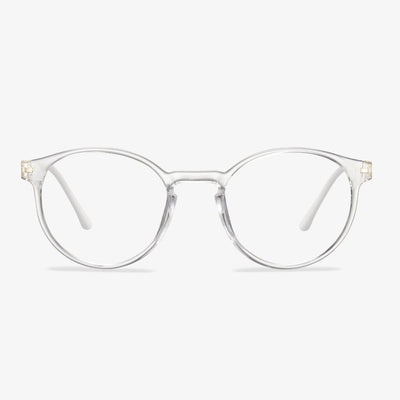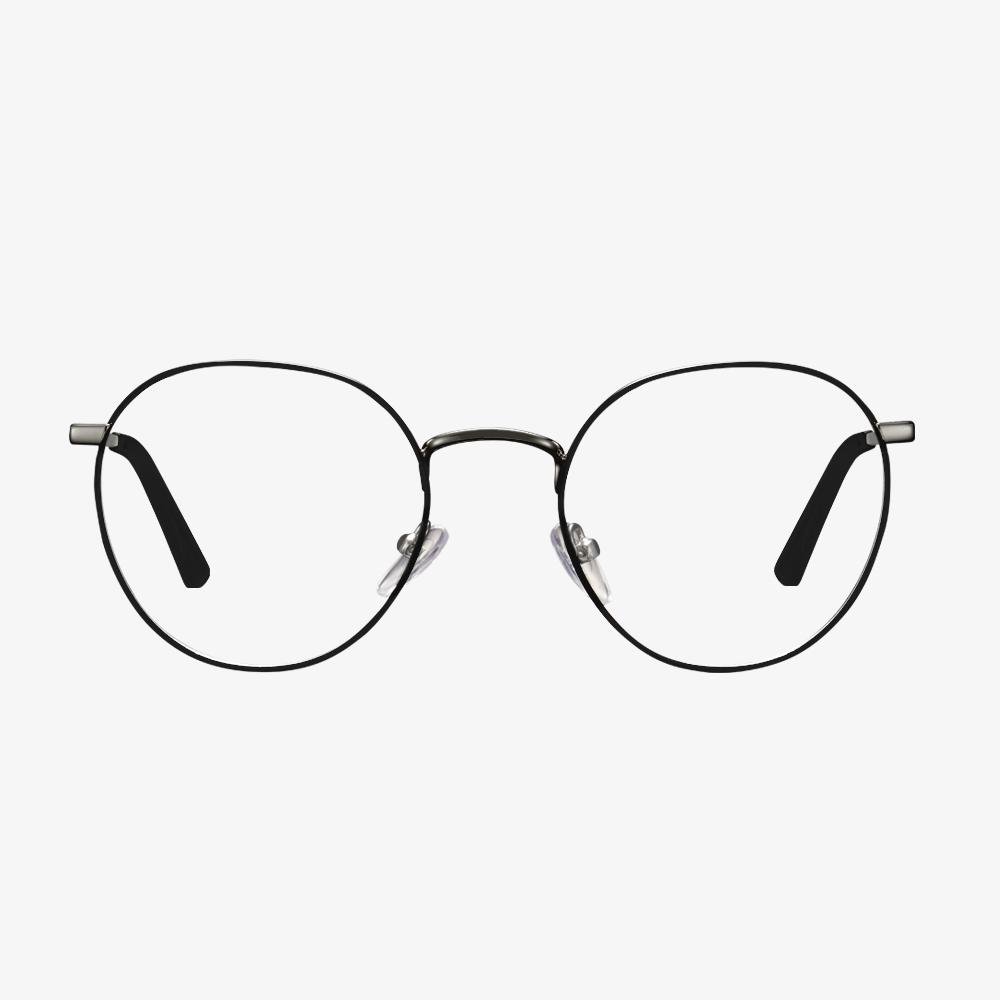Different Types of Progressive Lenses
The short corridor progressive lenses that are designed to fit into small frames. They trade practically for a more fashionable look. Some people have difficulty transitioning to short corridor progressive because of the lens size and vision can feel more distorted sometimes because of this.
Transition progressive lenses are the last type. They are a brand of photochromic lenses. These lenses darken when exposed to UV light to provide shade for your eyes. They operate as a useful alternative to sunglasses.
Do blue light glasses actually block blue light?
Anti-blue light glasses are still popular on the market. This kind of glasses is said to be 'anti-radiation and anti-blue light', but this kind of hot-selling anti-blue glasses has many problems. At present, such anti-blue glasses mainly block or absorb blue light through special materials, but there are two misunderstandings in its blue light protection. One is that the protection is not preventable, and the other is that the color cast caused by the wrong protection makes visual fatigue aggravated. Studies have shown that our eyes are the most intolerant of blue light in the 400nm to 440nm band. Therefore, current manufacturers mainly block blue light in this band when producing anti-blue glasses. But the electronic products that we often come into contact with nowadays produce blue light between 450 nanometers and 490 nanometers, and anti-blue glasses have almost no protection in this wavelength. Generally speaking, the blocking rate of anti-blue glasses is 20% to 30%, but now the blocking rate of anti-blue glasses on the market basically reaches 80% to 90%. This high blocking rate can also easily cause a color shift. , It is easier to make the eyes tired.
You can buy glasses of new eyewear brands.
Some emerging glasses brands are completely independent brands. Their own processing team and the processing instruments are imported instruments. The processed glasses are very standard, and the work is very careful. There are many choices for styles. The most important thing is that the color is good, it is not allergic, it is not easy to fade, and it can go with everything. Whether from their own grade or design, they have their advantages.
Features of Beta titanium glasses frame
Beta titanium has better strength, fatigue resistance, and environmental corrosion resistance than pure titanium and other titanium alloys. The shape plasticity is very good, which can be made into wire and sheet, more lightweight. They are used to make glasses and can get more shapes and styles. It's the material for a new generation of glasses. Customers with higher requirements for style and weight can completely choose beta-titanium glasses. Because β titanium processing technology is higher than pure titanium, usually only large factories and brands will produce, and the price is higher than pure titanium glasses.
Best Titanium Eyeglasses Frames Brand - BLACKFIN
BLACKFIN is a traditional Italian designer eyewear brand. It is greatly respected in the independent eyewear industry because of its focus on titanium glasses. For BLACKFIN, this is not just another random piece of material, but part of an entire belief system.BLACKFIN's products are all manufactured in Italy and crafted with the highest quality levels. They are highly valued by opticians because they are made accurately in line with high-quality workmanship. The brand places its entire focus on titanium as a material and manufactures all frames in Italy.BLACKFIN not only focused on the unbelievable material of glasses and sunglasses, but it built the spirit of the company.
Polycarbonate vs Plastic Lenses: Which One Is Better?
From the above information, you may have learned some features of polycarbonate glasses and plastic lenses. So, do you know which one is better?
Here are some a few differences between both lenses to determine which one is better.
- Polycarbonate lenses are more expensive than plastic glasses.
- Polycarbonate lenses are very resistant to tint compared with plastic lenses which accept tints.
- Polycarbonate glasses have inherent UV protection, while plastic lenses do not have.
- Polycarbonate glasses have higher impact resistance and offer greater protection than plastic lenses.
- Polycarbonate glasses are lighter than plastic glasses.
- Plastic glasses have a higher optical clarity than polycarbonate lenses.
So, from the above part, you may have learned which one is better and you may have a decision of how to choose.
Benefits of glasses
You don't need a special cleaning plan, and they don't require much care. You can choose from a variety of frames to suit your style. If your vision stays the same, you won't need to change your glasses as often. You don't need to touch your eyes to wear them, and in addition, glasses can adjust the amount of light entering your eyes for optimal comfort and vision. Glasses are more powerful modifiers than contact lenses. Glasses are not only used as a tool to correct vision but as accessories. On different occasions, the different dresses should match different frame glasses, reflecting the person's different temperament.











































